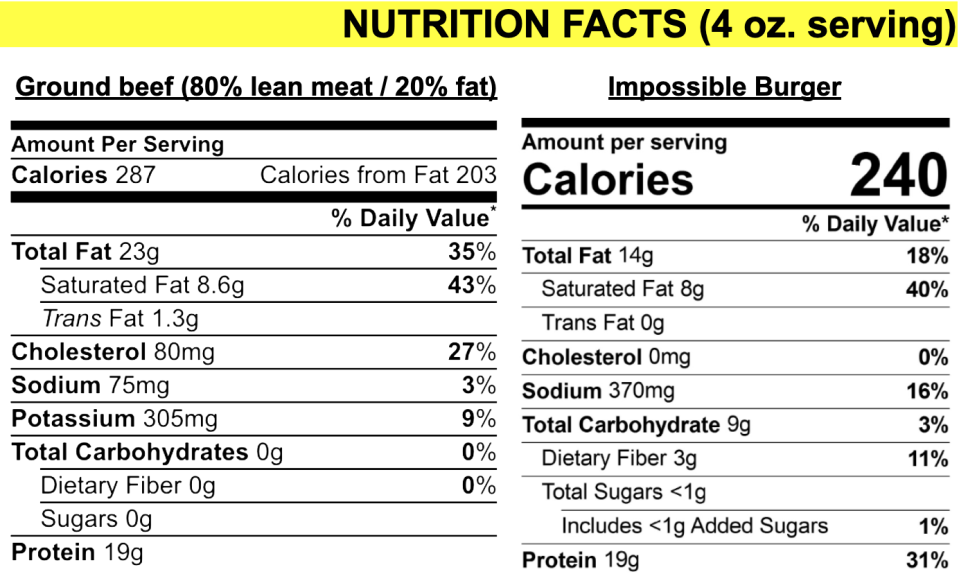Are meatless burgers bad for you? Impossible Foods CEO responds
Patrick Brown may be the founder and CEO of Impossible Foods, but he doesn’t consider himself a foodie.
“Our company is completely based on science and research,” he told Yahoo Finance in a new interview. “When I founded the company, the most important scientific problem in the world at the time, and still, is understanding what makes meat delicious and crave-able to consumers.”
The Impossible Burger patty has been researched and developed in a lab in Redwood City, California. The “plant-based” moniker gives it an air of healthfulness, but part of Brown’s mission is to make it taste as close to meat as possible. The burgers are made of a proprietary formula with a key ingredient called heme, an iron-producing molecule that gives its burgers a meat-like flavor.

While there are concerns that the burgers are overprocessed because they’re literally created from a test tube, most mass produced animal-based meats are highly processed, as well. Brown himself stopped eating meat more than 45 years ago and adopted an entirely plant-based diet 15 years ago.
So how nutritious is the Impossible burger? Impossible has the same amount of protein as a lean beef patty. The imitation meat is slightly lower in calories, fat and cholesterol, but has more carbs and has five times as much sodium — 16% of daily recommended value, compared to 3%.
But Brown, a medical doctor and biochemist by trade, argues that the sodium comparison is a misleading indicator.
“The sodium level may be higher than beef from a cow. But if you're on a sodium-restricted diet, you'd have to eat six Impossible Burgers just to get to the level that a person on a limited sodium diet can tolerate. So it is not a high sodium product. It's kind of like, [one kind of] chewing gum may be higher sodium than [another] chewing gum. But it doesn't matter, because both of them are very low,” he explained in an interview with Yahoo Finance.

Nearly all of Impossible Foods’ customers are omnivores. Ninety-five percent of Impossible Burger eaters have consumed meat from animals in the same month that they ate the faux burger, according to the company.
"I think it is a healthier option than what it replaces. And that's our goal. If we said, ‘Listen, here, you ordered a burger, but we're going to give you a kale salad' or something like that, that's not going to work,” he said.
Brown believes he has taken a practical approach to solving what he calls “the most important and challenging scientific question.”
Still, he isn’t fully satisfied with the current iteration of the product, which swapped in soy for wheat to make it gluten-free.
“We constantly have to make it healthier for the consumer. And we're working on this all the time. We have improvements underway that are already quite improvements over our current product,” he said. “But, but the critical thing is, if it doesn't deliver what meat lovers crave, it doesn't matter how healthy it is.”
Melody Hahm is a senior correspondent at Yahoo Finance, covering entrepreneurship, technology and culture. Follow her on Twitter @melodyhahm. She also hosts Breakouts, an interview series featuring up-close and intimate conversations with today’s most innovative business leaders.
Read more:
